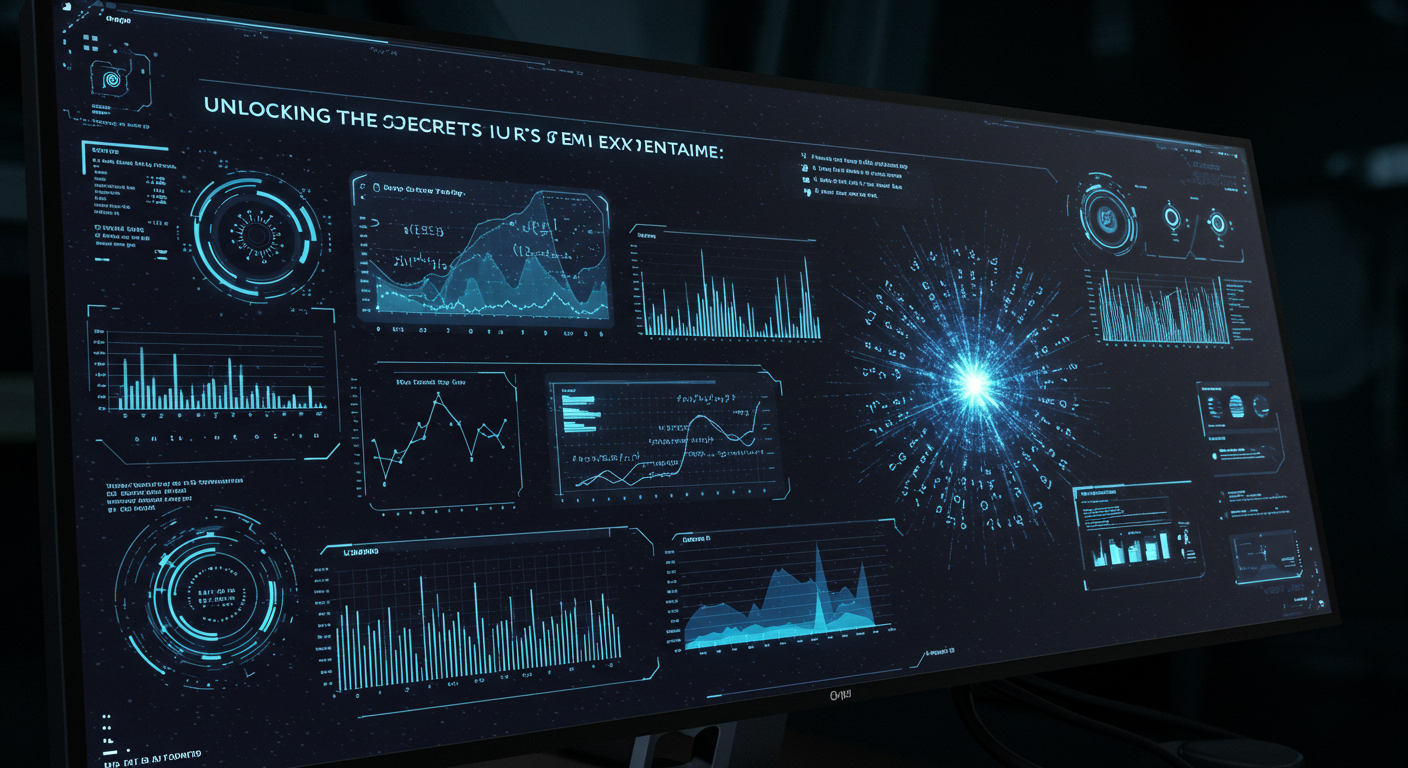Have you ever felt like time was slipping through your fingers, or perhaps dragging on endlessly? If so, you’re not alone. Time has a peculiar way of playing tricks on us. Enter the enigmatic world of exhentaime—a concept that blurs the lines between our perception and reality. Just when you thought you understood how time works, this intriguing phenomenon challenges everything we know.
Exhentaime isn’t just another buzzword; it’s a fascinating exploration into how we experience the passage of time in different states. Prepare to dive deep into its origins, psychological impacts, and even ethical dilemmas as we unlock the secrets behind this captivating topic. Whether you’re an avid learner or simply curious about what makes us tick (or tock), this journey promises to unravel mysteries that might change your perspective on one of life’s most elusive elements: time itself.
History and origins of exhentaime
Exhentaime has roots that stretch back to ancient philosophical debates. Thinkers pondered the nature of time, questioning whether it was linear or cyclical.
In modern times, advancements in physics have shed light on these age-old questions. Theories emerged from Einstein’s work on relativity, suggesting that time is not a constant but can be influenced by speed and gravity.
The term “exhentaime” may have gained traction in scientific circles during the late 20th century. Researchers explored its implications for technology and human experience.
As discussions evolved, so did interest from various fields like psychology and neuroscience. Scholars examined how our perception of time could be altered under specific conditions.
This fascinating blend of science and philosophy continues to inspire inquiry today as we delve deeper into understanding what exhentaime truly means for humanity’s relationship with time itself.
Understanding the concept of time dilation
Time dilation is a fascinating concept that emerges from Einstein’s theory of relativity. It suggests that time moves at different rates depending on one’s speed or gravitational field.
Imagine two twins: one stays on Earth while the other travels near the speed of light in space. When they reunite, the traveling twin will be younger. This isn’t just a thought experiment; it has real implications for space travel and our understanding of physics.
Gravity also plays a role in this phenomenon. Clocks closer to massive objects, like planets or stars, tick more slowly than those farther away. This means time can stretch and compress based on your surroundings.
Understanding time dilation challenges our everyday perceptions of reality. It invites us to rethink how we experience moments and life itself within different contexts across the universe.
How exhentaime affects our perception of time
Exhentaime shifts our understanding of time in fascinating ways. When immersed in this altered state, moments stretch or contract unexpectedly. This fluidity can make a few minutes feel like hours, or vice versa.
Our daily activities often dictate how we perceive the passage of time. In an exhentaime experience, however, those markers blur significantly. Routine tasks may seem mundane but take longer to complete when engaged deeply.
Conversely, thrilling experiences can compress time into fleeting fragments. The heart races; seconds vanish as excitement takes over.
This phenomenon reveals much about our brains and their intricate wiring for processing temporal information. It reminds us that perception is subjective—a dance between emotion and cognition—shaping our lived reality uniquely each day.
The psychological and physical effects of living in an exhentaime state
Living in an exhentaime state can significantly alter both psychological and physical experiences. Time might feel stretched or compressed, leading to unique emotional responses.
For some, this distortion can spark creativity. Ideas flow more freely when the pressure of time fades away. However, it can also foster anxiety for those who struggle with disorientation.
Physically, a sense of exhaustion may arise from prolonged periods spent within this altered state. The body adapts differently; fatigue sets in as normal rhythms are disrupted.
Sleep patterns often shift too. A person may find themselves awake during night hours while feeling alert during traditionally mundane daytime activities.
Social interactions also take on new dimensions. Relationships can deepen as individuals explore shared experiences within the timeless realm—or suffer strain if one partner becomes lost in the experience while another remains anchored in reality.
Ways to manipulate and control exhentaime
Manipulating and controlling exhentaime is a fascinating concept. Various techniques can help individuals harness its potential.
Mindfulness practices are among the most effective methods. By focusing on the present moment, people can stretch their perception of time. Meditation enhances awareness, allowing for deeper engagement with experiences.
Another approach involves environmental changes. Altering surroundings—like lighting or sound—can influence one’s sense of time passing. For instance, calming music might slow down the experience of time during relaxation activities.
Creative endeavors also play a significant role. Engaging in art or writing can lead to flow states where hours seem like minutes. This immersion allows one to control their perception significantly.
Technology offers tools to manipulate exhentaime as well. Virtual reality experiences can warp our understanding of temporal dimensions, making it possible to explore new realms of existence within controlled time frames.
Ethical implications and controversies surrounding exhentaime
The concept of exhentaime raises numerous ethical questions. As we explore its potential, the implications on society become significant. Time manipulation could lead to inequalities and disparities that favor those who can access this technology.
Concerns about consent also emerge. If individuals can alter their perception of time, do they fully understand the choices they’re making? The blurred lines between reality and altered experiences further complicate matters.
Moreover, there’s the risk of abuse. Entities might exploit exhentaime for profit or control over individuals’ lives. This potential misuse leads to fears surrounding autonomy and free will.
Debates around regulation are ongoing as well. Who should govern the use of such powerful technology? Striking a balance between innovation and responsibility is crucial in navigating these controversies that surround exhentaime’s implementation in society.
Applications and potential uses for exhentaime technology
Exhentaime technology opens doors to fascinating applications across various fields. In education, it could revolutionize learning experiences by allowing students to absorb information at accelerated rates. Imagine mastering complex subjects in what feels like minutes.
In the realm of mental health, therapists might utilize exhentaime techniques for immersive therapy sessions. Patients could confront trauma or anxiety within a controlled timeframe that alters their emotional responses.
The entertainment industry isn’t left behind either. With exhentaime, filmmakers could create narratives that manipulate viewers’ perception of time, crafting deeply engaging stories where moments stretch and contract based on emotion.
Healthcare also stands to gain significantly. Surgeons may perform intricate procedures with enhanced focus and precision while operating in an altered state of time flow.
Even space exploration can benefit from this technology. Astronauts traveling long distances could experience days as hours, addressing challenges related to prolonged missions effectively.
Embracing or rejecting exhentaime
The choice to embrace or reject exhentaime is deeply personal. It invites reflection on how we perceive our own lives and the passage of time.
For some, embracing exhentaime offers a chance to break free from linear constraints. This perspective allows individuals to experience life in vivid moments rather than adhering strictly to schedules and deadlines.
On the other hand, rejecting it can stem from a desire for structure. Many thrive within predictable routines, finding comfort in knowing what lies ahead.
There’s also an emotional aspect at play. Some may fear losing control if they dabble too much in this altered state of existence.
Whether one chooses acceptance or dismissal depends on individual values and experiences with time itself. Each path presents unique challenges and rewards that shape one’s journey through life.
Final Thought
As we delve deeper into the realm of exhentaime, it becomes increasingly clear that our understanding of time is far from conventional. The nuances within this concept challenge everything we know about our daily lives.
Living in a world influenced by exhentaime can transform personal experiences and relationships. It invites us to question how we perceive moments, memories, and even aspirations.
With the rapid advancement of technology, the potential for harnessing exhentaime could reshape industries. Imagine a future where productivity peaks or creativity flows with newfound intensity.
Yet, as enticing as these possibilities are, ethical considerations loom large. How do we manage power over time without losing sight of humanity?
The journey ahead is both exciting and daunting. Engaging openly with what exhentaime offers will define its role in shaping human experience going forward.
Conclusion
Understanding exhentaime opens up a fascinating realm of possibilities. The concept challenges our traditional perceptions of time and space, leading us to explore not only its scientific implications but also the profound psychological effects it can have on us. As we delve deeper into this topic, we find ourselves at the intersection of technology, ethics, and human experience.
The potential applications for exhentaime are vast, from enhancing productivity to altering therapeutic practices. However, with such power comes responsibility. Questions about morality and ethical use must be addressed as we navigate this new frontier.
As society continues to evolve alongside technological advancements, embracing or rejecting exhentaime may shape our future in unexpected ways. Each choice could lead to different paths—ones that redefine how we live our lives day by day.
Exploring exhentaime is not merely an academic exercise; it’s a journey into understanding what time means for humanity itself. Whether you choose to embrace it or approach it with caution will ultimately define your relationship with the very fabric of existence.







